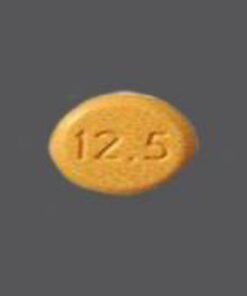Overview
Adderall is a prescription medication used to treat attention deficit hyperactivity disorder (ADHD) and narcolepsy. It contains a combination of amphetamine and dextroamphetamine, which are stimulants that affect chemicals in the brain and nerves that contribute to hyperactivity and impulse control. It helps increase attention and decrease hyperactivity and impulsiveness in patients with ADHD. It is important to use Adderall only as prescribed by a healthcare professional, as it can be habit-forming and may have side effects.
Adderall is available in both immediate-release (Adderall IR) and extended-release (Adderall XR) forms. The immediate-release version usually lasts about 4-6 hours, while the extended-release version can last up to 12 hours. It works by increasing the levels of dopamine and norepinephrine in the brain, which are neurotransmitters that play a role in concentration, focus, and impulse control.
Common side effects of Adderall can include decreased appetite, difficulty sleeping, dry mouth, headaches, and nervousness. More serious side effects can occur, such as increased heart rate, high blood pressure, and even psychiatric symptoms like hallucinations or paranoia. It’s important to follow your healthcare provider’s instructions carefully and report any side effects promptly.
Adderall should not be taken by individuals with certain medical conditions like heart problems, high blood pressure, or a history of drug abuse. It can also interact with other medications, so it’s crucial to inform your doctor about all the medications you are taking before starting Adderall.
Advantages And Disadvantages
Advantages:
1. Improved focus and concentration: Adderall can help individuals with ADHD improve their ability to focus and concentrate on tasks.
2. Increased energy levels: It can help reduce feelings of fatigue and increase energy levels, allowing individuals to be more productive.
3. Better impulse control: Adderall can help individuals better control impulsive behaviors and make more thoughtful decisions.
4. Treatment for narcolepsy: Adderall is also used to treat narcolepsy, a condition characterized by excessive daytime sleepiness.
Disadvantages:
1. Side effects: Adderall can cause side effects such as decreased appetite, difficulty sleeping, and increased heart rate.
2. Potential for abuse: Due to its stimulant properties, Adderall has a potential for misuse and can be habit-forming.
3. Tolerance and dependence: Over time, some individuals may develop a tolerance to Adderall, requiring higher doses to achieve the same effects. This can lead to dependence.
4. Not suitable for everyone: Adderall is not recommended for individuals with certain medical conditions, and it can interact with other medications.
It’s important to weigh the benefits and risks of taking Adderall and to use it only as prescribed by a healthcare provider.
Adderall
Adderall
Adderall
Adderall
Adderall
Adderall
Adderall
Adderall
Adderall
Adderall
Adderall
Adderall











